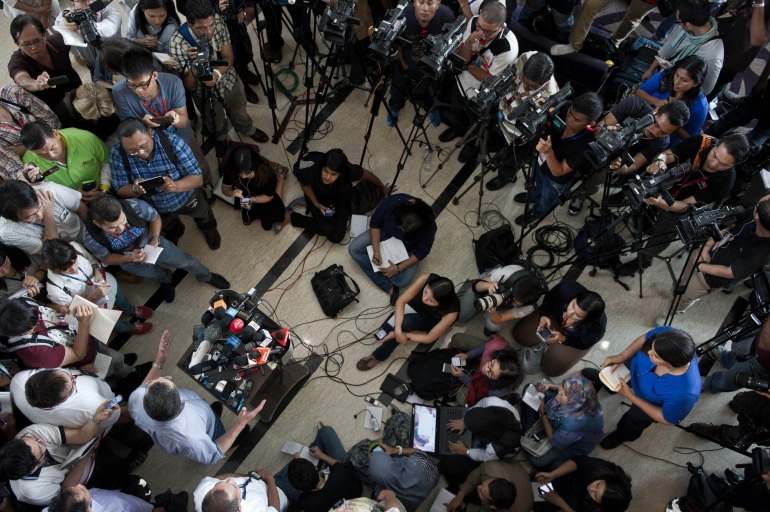The fog of censorship in China's media

At a renewable energy conference last week in Shenzhen, Chinese vice premier Ma Kai brandished a copy of Caixin’s Century Weekly magazine and told the audience that if they wanted to understand the obstacles in the way of promoting the use of electric cars, they had to read Caixin.
“This magazine is great. It has factually, objectively and insightfully analysed the problems facing the promotion of electric cars. Senior editors from Xinhua and other media outlets need to learn from Caixin. Companies and officials need to read this magazine,” he reportedly told the audience.
It is rare to hear a senior party official openly barracking for a news magazine -- especially if it is an outlet known for a sharp brand of investigative journalism that often tests the patience of censors. Caixin’s feisty editor-in-chief Hu Shuli is known as the most dangerous woman in China after her multiple exposés of corruption in China’s murky business world.
Hu and her merry band of reporters have broken some of the biggest business stories in a country known for its tight censorship. These stories include some of the earliest reports on the outbreak of the SARS epidemic, which the authorities in Beijing tried to gloss over, as well as the corruption involved in the privatisation of state-owned assets.
Her ground-breaking investigative journalism offers a breath of fresh air in a country where the media landscape is under the tight control of party inquisitors. They don’t hesitate to stage investigations to root out journalists and editors who dare to cross the line.
What’s the secret behind Hu’s ability to navigate China’s dangerous media terrain? Hu and her publication have prospered due to a combination of unique factors including early support from the powerful and reform-minded princeling Wang Boming, who protected her embryonic publication from unruly intervention.
Caixin and its predecessor Caijing were founded in the late 1990s, when Beijing was more relaxed about ideological control over the media, and especially business publications, which were an area apparatchiks from the propaganda department had little expertise in.
One of Hu’s greatest skills is to play the role of loyal opposition to the red emperor. “Hu does not live the marginalised life of a samizdat editor or sign dissidents’ communiqués. When she criticises, either in her column or in her editing choices, she uses the language of loyal opposition,” says a New Yorker profile of the editor.
Caixin and Hu have collected numerous international journalism awards along the way including the Louis Lyons Award for Conscience and Integrity in journalism by the Nieman Foundation at Harvard and the Shorenstein Journalism Award from Stanford.
However, the lonely star of the Chinese media landscape is under assault on both fronts -- government censors and the emergence of new media. Beijing has been tightening its control over media since Xi Jinping took power last year.
One of Caixin’s top investigative reporters, who exposed a scandal involving unscrupulous local governments that were selling babies to American parents, was forced to leave the company after pressure from the censors.
Though the company tried to protect him by inventing new names for him, the censors eventually had their way after a protracted game of cat and mouse. In the last few years, some of the company’s star reporters have left for positions in the foreign media or other businesses, including Cao Haili, who became the editor of The New York Times’ Chinese website.
A Caixin reporter told Business Spectator the exodus of people has left many demoralised and that the censorship was getting tougher.
Beijing has also been cracking down on outspoken critics on Chinese social media. A few well-known people, including a Chinese-American businessman, have been thrown behind bars. While the Chinese government is trying to implement a liberal market reform agenda, it is actually turning back the clock on political reform, which includes tightening its grip over the media.
China desperately wants to improve its soft power at a time when countries around the world are getting nervous about an emerging superpower with an authoritarian government. The party is spending billions on its state-owned media in order to bolster its image abroad.
However, it is tightening the noose around one of the country’s best-recognised international media brands at the same time. If China wants the world to hear its narrative, it needs to let media outlets like Caixin operate with more latitude and freedom.
















